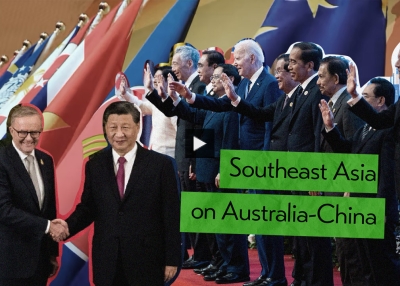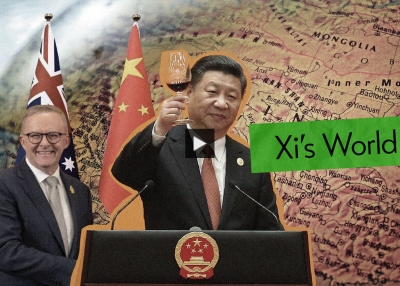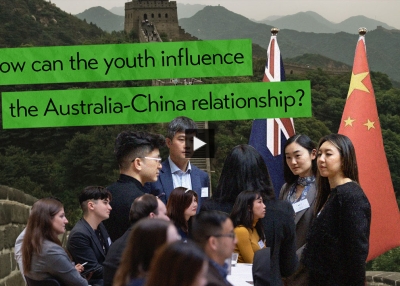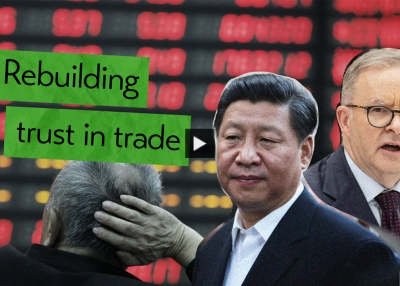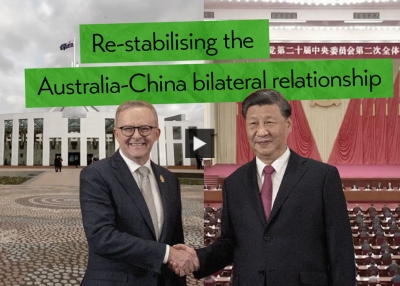Australia struggles to influence great-power competition but has agency closer to home
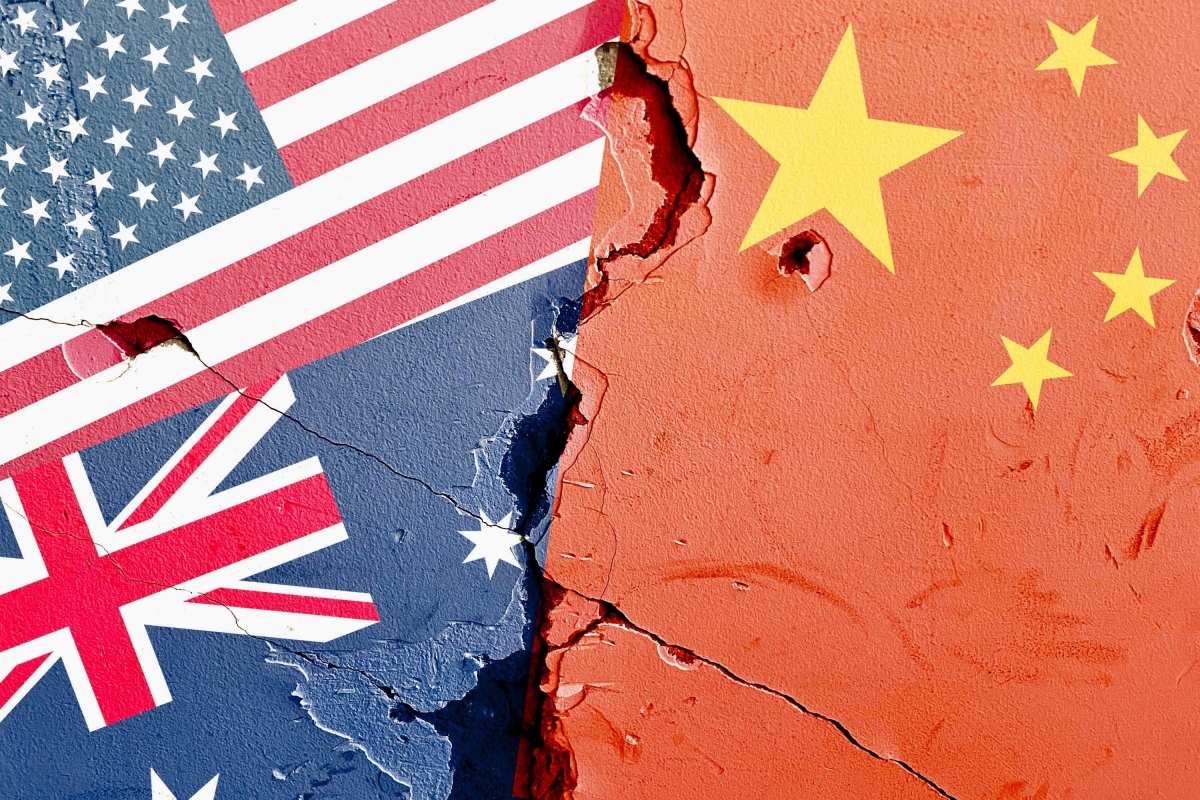
By Neil Thomas, Fellow, Asia Society Policy Institute's Center for China Analysis.
Australia is a country whose foreign policy is often shaped by geopolitical forces beyond its control. The leading history of Australian foreign policy is called “Fear of Abandonment,” which describes Canberra’s anxiety about first London and then Washington’s commitment to defending peace, prosperity, and order in the region.
These worries reflect Australia’s status as a middle power, constrained not only by transnational challenges, including pandemics and climate change, but also by the choices of great powers, principally the United States and China at present. While Australia watches in fear, histories of US foreign policy boast titles like “Promised Land, Crusader State” and “Special Providence,” and volumes such as “China’s Quest” and “China Goes Global” depict a rising power.
The current fear in Australia is that China will dominate the Indo-Pacific. China’s growth provides significant economic benefits, but the expanding ambitions of the Chinese Communist Party under General Secretary Xi Jinping pose sharp challenges for Australia. His desire to advance authoritarian politics, state-centric values, and territorial claims in places ranging from Taiwan to South China Sea will progressively limit Canberra’s appetite for close relations.
Optimists once hoped Australia could help China become a more open society or could broker cooperation between China and the United States, but Xi’s rise shows Canberra holds little sway in Beijing. Australia thinks about China a whole lot more than the other way round. Yet if the Australian prime minister cannot convince Xi to alter his policies, they can still lend weight to US efforts to deter Chinese revisionism abroad. Australia’s star shines only as a supporting actor.
Australia responded to China’s assertive diplomacy by drawing closer to the United States, its main security ally, both bilaterally and mini-laterally through AUKUS and the Quad. Put simply, the United States underpins a regional order that Australia could not build itself, and Canberra would prefer that Washington rather than Beijing call the shots. US power tends to uphold territorial boundaries and to work towards ideals of democratic politics, market economics, and global governance that favor Australian interests more than do Chinese alternatives.
The US alliance enjoys strong bipartisan support in Australia, but deeper ties are not risk-free. Embracing the United States is easier when an alliance-builder like Joe Biden is president compared to a commander-in-chief with a combative view of international affairs. Recent polling suggests the US election in November 2024 is a toss-up between Biden and his predecessor Donald Trump. If Trump wins, the alliance will endure, but its costs may climb. Especially as the militaries of the two countries become increasingly intertwined.
A new US administration could adopt an “America First” approach that emphasizes unilateral action, neglects groupings like the Quad, and alienates much of both the Western and non-Western worlds. It could intensify restrictions on Chinese trade and technology, causing economic disruption for partners like Australia. It could enrage Beijing by upgrading ties with Taiwan, such as by granting Taipei a formal security guarantee, and raise the odds of a security crisis. It could even demand Canberra follow its policies as a precondition to receiving the nuclear-powered submarines promised by AUKUS.
Canberra enjoys more clout in Washington than Beijing, but this influence applies mostly to bilateral ties rather than shaping the direction of US foreign policy. The Albanese government’s China policy—"cooperate where we can, disagree where we must and engage in the national interest”—is already a lite version of the Biden administration's formula for a China relationship that is “competitive when it should be, collaborative when it can be, and adversarial when it must be.” Washington, as well as Beijing, will shape the future of Australia-China relations.
What agency does Australia have? First and foremost, Canberra can invest more in its own resilience and self-reliance, especially regarding national defense and growth policy. It can also exercise influence by forging closer diplomatic and security cooperation with and between likeminded middle powers, notably regional democracies such as India and Japan, and building partnerships with developing countries in the Pacific Islands and Southeast Asia. These bonds advance Australia’s vision for a “peaceful, stable and prosperous Indo-Pacific” and make it harder for Beijing to capture local elites or dominate regional bodies. They also enhance possibilities for collaboration in the event of US withdrawal, as exemplified by the trade pact concluded by Trans-Pacific Partnership (TPP) countries after the United States withdrew from the TPP in 2017. They may even help alleviate Australia’s fear of abandonment.
Neil Thomas is a Fellow on Chinese Politics at Asia Society Policy Institute’s Center for China Analysis. He is on Twitter @neilthomas123.
